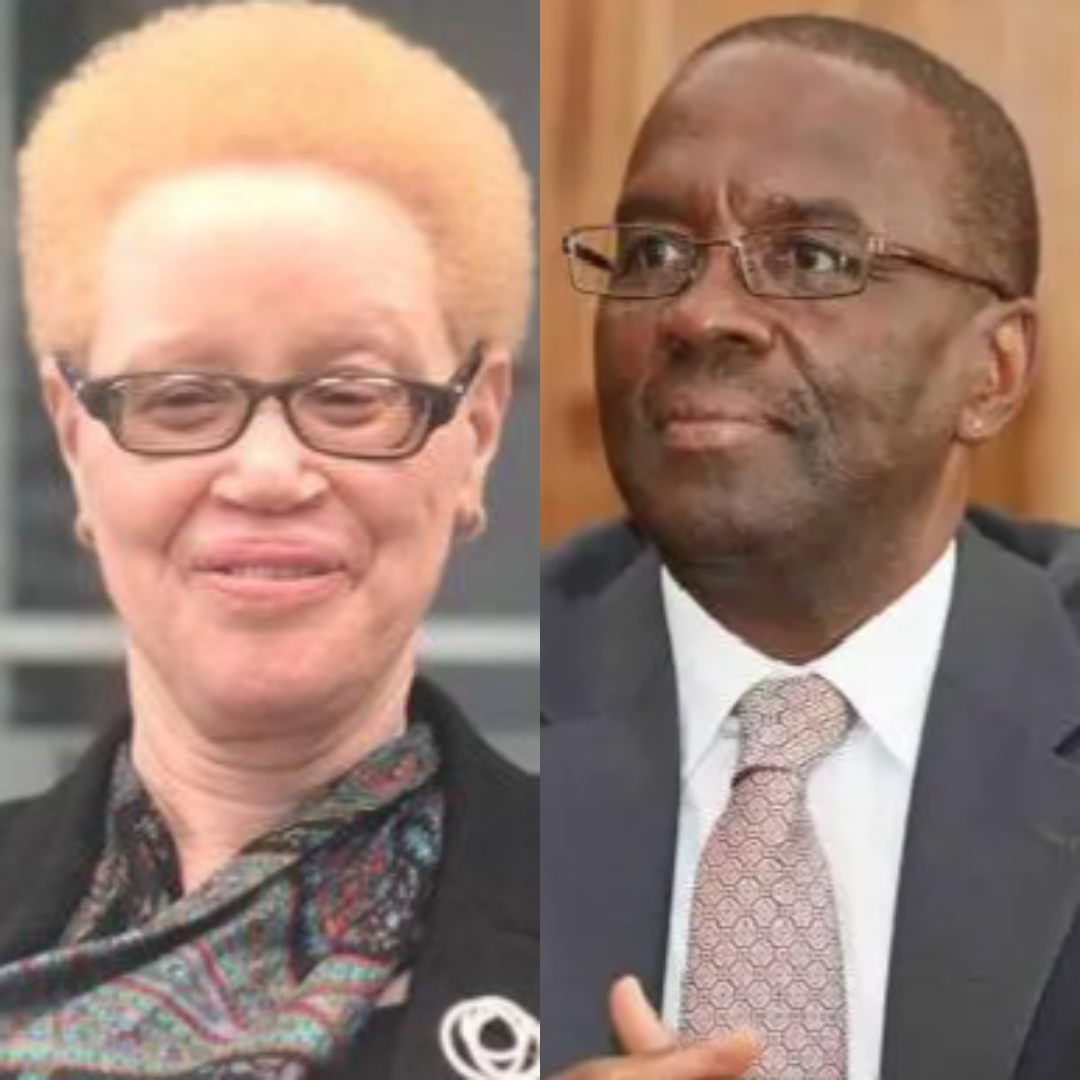By Francis Gaitho | September 25, 2025
In the annals of Kenya’s post-2010 constitutional era, Dr. Willy Mutunga stands tall as the self-proclaimed architect of judicial transformation – a bearded revolutionary in robes, who swept into the Chief Justice’s office in 2011 promising to dismantle the old guard’s corruption and ethnic cabals, ushering in an era of accountability and human rights.
His Judiciary Transformation Framework 2012-2016 painted a utopia: digitized courts, anti-corruption purges, and a judiciary that served the people, not the powerful.
Mutunga, the former human rights activist detained under Moi’s iron fist, positioned himself as the anti-establishment savior. But peel back the veneer of his reformist rhetoric, and what emerges is a chilling tale of covert capitulation to the very executive he swore to check.
No case exemplifies this betrayal more starkly than the swift exile of Justice Mumbi Ngugi in April 2016 – a transfer that reeks of punitive retaliation for daring to defend free speech against state-sponsored digital tyranny.
Let’s rewind to April 19, 2016. Justice Ngugi, then a stalwart in the Constitutional and Human Rights Division at Milimani High Court, delivered a seismic judgment in Geoffrey Andare v Attorney General & 2 Others. At issue was Section 29 of the Kenya Information and Communications Act (KICA), a draconian relic that criminalized the “improper use of a licensed telecommunications system.”
On paper, it targeted “grossly offensive,” “indecent,” or “menacing” communications – vague terms that the state weaponized to harass bloggers, journalists, and activists. Petitioners like Geoffrey Andare, a vocal critic charged under the section for online posts, argued it violated Articles 24 and 33 of the Constitution, stifling freedom of expression with its overbroad net.
Ngugi didn’t mince words. She eviscerated the provision as “vague and over-broad,” failing the constitutional test for limiting rights under Article 24.
It wasn’t just unconstitutional; it was a farce, duplicating civil remedies like libel while arming prosecutors with criminal cudgels.
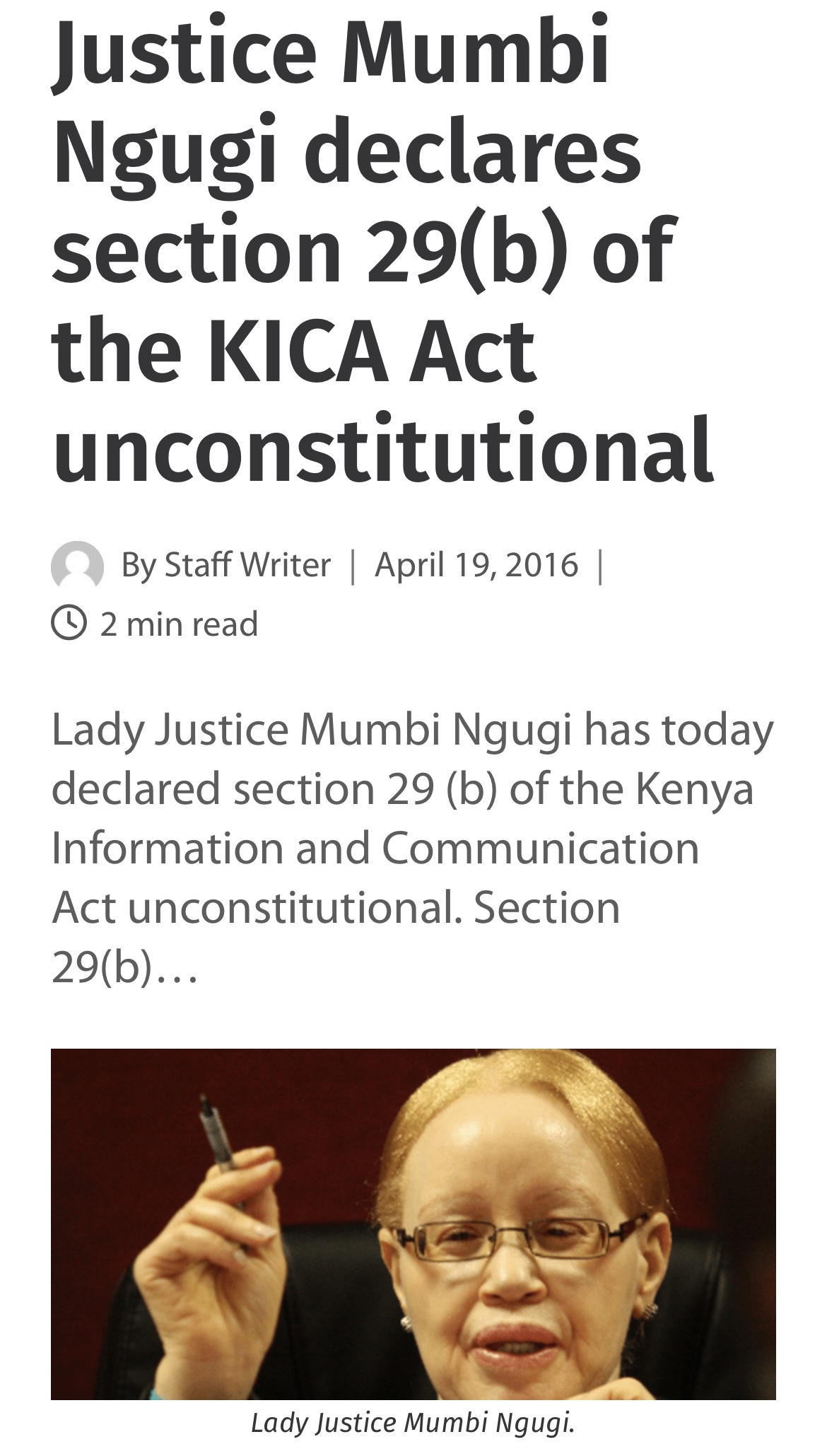
Ngugi lambasted the state’s habit of criminalizing speech better suited to defamation suits, citing a recent Sh5 million libel award against a blogger as proof. Her verdict? Section 29 was null and void – a victory for digital rights that echoed global wins, like India’s Supreme Court striking down a similar IT Act provision.
This wasn’t abstract jurisprudence. Section 29(b) had become the state’s go-to gag order, ensnaring bloggers in multiple cases since 2012 for “annoying” posts that irked the elite.
ARTICLE 19, intervening in the case, hailed Ngugi’s ruling as a “win for freedom of expression,” urging the judiciary to scrap it entirely.
In a nation still healing from post-election violence and media crackdowns, her decision was a bulwark against the creeping authoritarianism that viewed dissent as a cyber-threat.
But the state didn’t take kindly to rebellion.
Enter Willy Mutunga, the reformist-in-chief whose fingerprints were all over judicial deployments.
On April 18 – one day before Ngugi’s ruling – Mutunga announced a massive reshuffle of 105 judges, yanking Ngugi from her Nairobi perch in the human rights division to the sleepy High Court in Kericho, a rural outpost far from the constitutional battlegrounds.
Coincidence? Hardly. The timing screamed reprisal, as if the executive’s ire – funneled through a pliant CJ – demanded swift punishment for a judge who dared clip the state’s surveillance wings.
Access Now, monitoring digital rights, called it out bluntly: Ngugi’s transfer “could be interpreted as a reprisal for her courageous ruling,” demoting her to “less controversial cases” in the hinterlands.
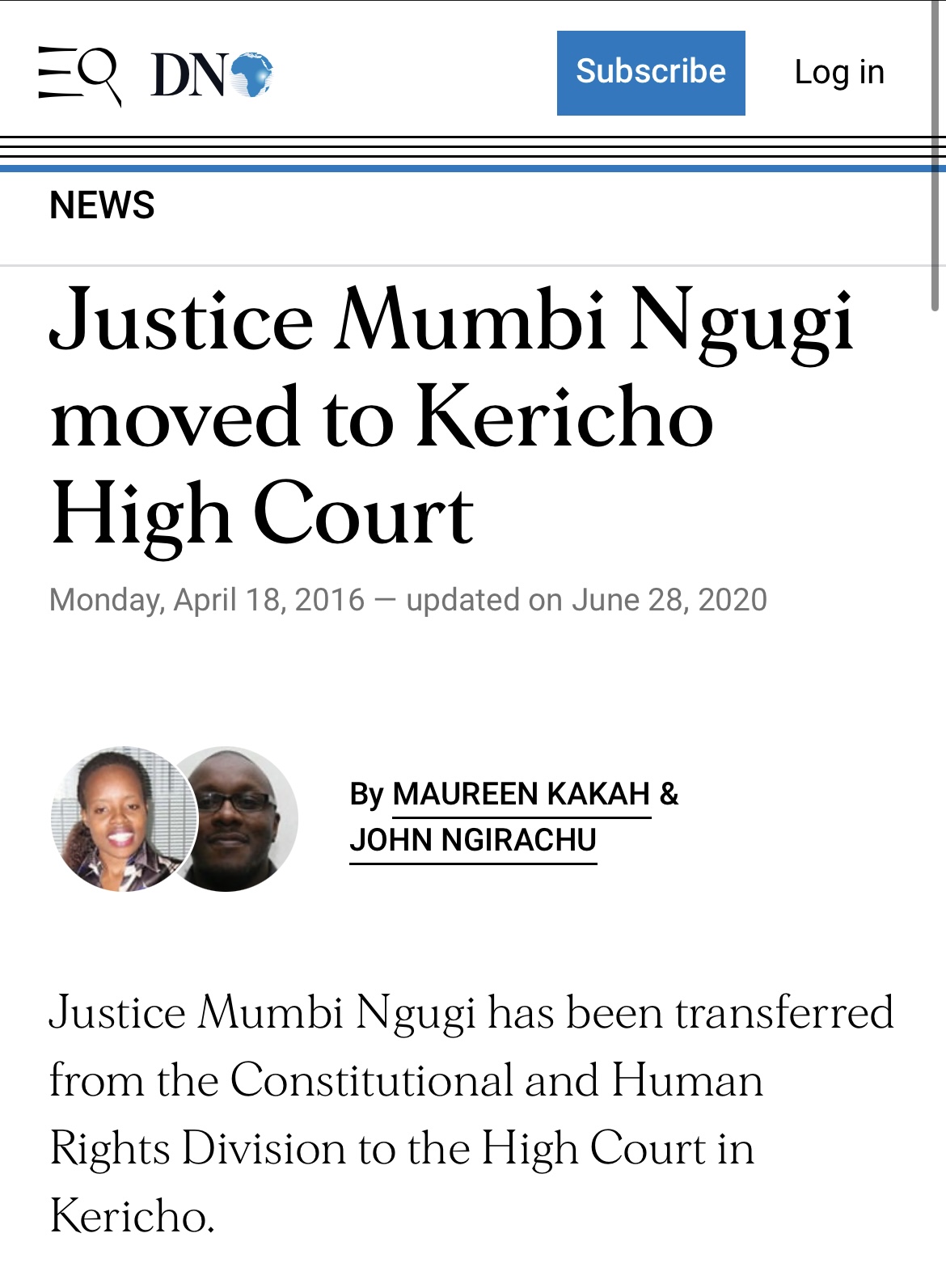
Mutunga’s defenders – and there are legions in the chattering classes who still genuflect to his “progressive” halo – claim the reshuffle was routine, part of decentralizing justice to bring courts closer to the people. Ngugi herself, in later accounts, has not publicly decried it as foul play, and Mutunga reportedly told questioners she “sought the transfer.”
But let’s interrogate that fairy tale. In a judiciary still scarred by executive meddling, where transfers have long been code for “toe the line or get sidelined,” the optics are damning.
Ngugi, a prolific human rights advocate and former Kenya Human Rights Commission researcher, was at the peak of her influence, authoring judgments that fortified constitutionalism. Exiling her to Kericho – where she presided from 2016 to 2019 before climbing to the Court of Appeal – effectively muted her voice on high-stakes free speech battles.
And Mutunga? The man who once chaired the Kenya Human Rights Commission and railed against state repression under Moi, now overseeing a move that echoed those dark days. His transformation framework touted “independence” and “integrity,” yet under his watch, the Communications Authority vowed to appeal Ngugi’s ruling, defending a law that “conforms to section 33” on expression limits – a laughable contortion that ignored her airtight reasoning.
His silence on the transfer’s shadow was deafening, a far cry from the activist who penned Constitution-Making from the Middle decrying elite capture.
The real scandal? Ngugi’s ruling didn’t just fizzle; it boomeranged into worse. With Section 29 gutted, the state didn’t reform – it reloaded. Enter the Computer Misuse and Cybercrimes Act of 2018, whose Section 23(a) – criminalizing “false publications” intended to “alarm, distress, or fear” – is the Frankenstein’s monster of KICA’s corpse.
Courts have since distinguished it from Section 29, arguing it’s narrower (targeting computer systems, not vague “telecom misuse”) and protects “public interest” over individual reputations. But make no mistake: it’s the precursor, repackaged to ensnare the same bloggers and tweeters.
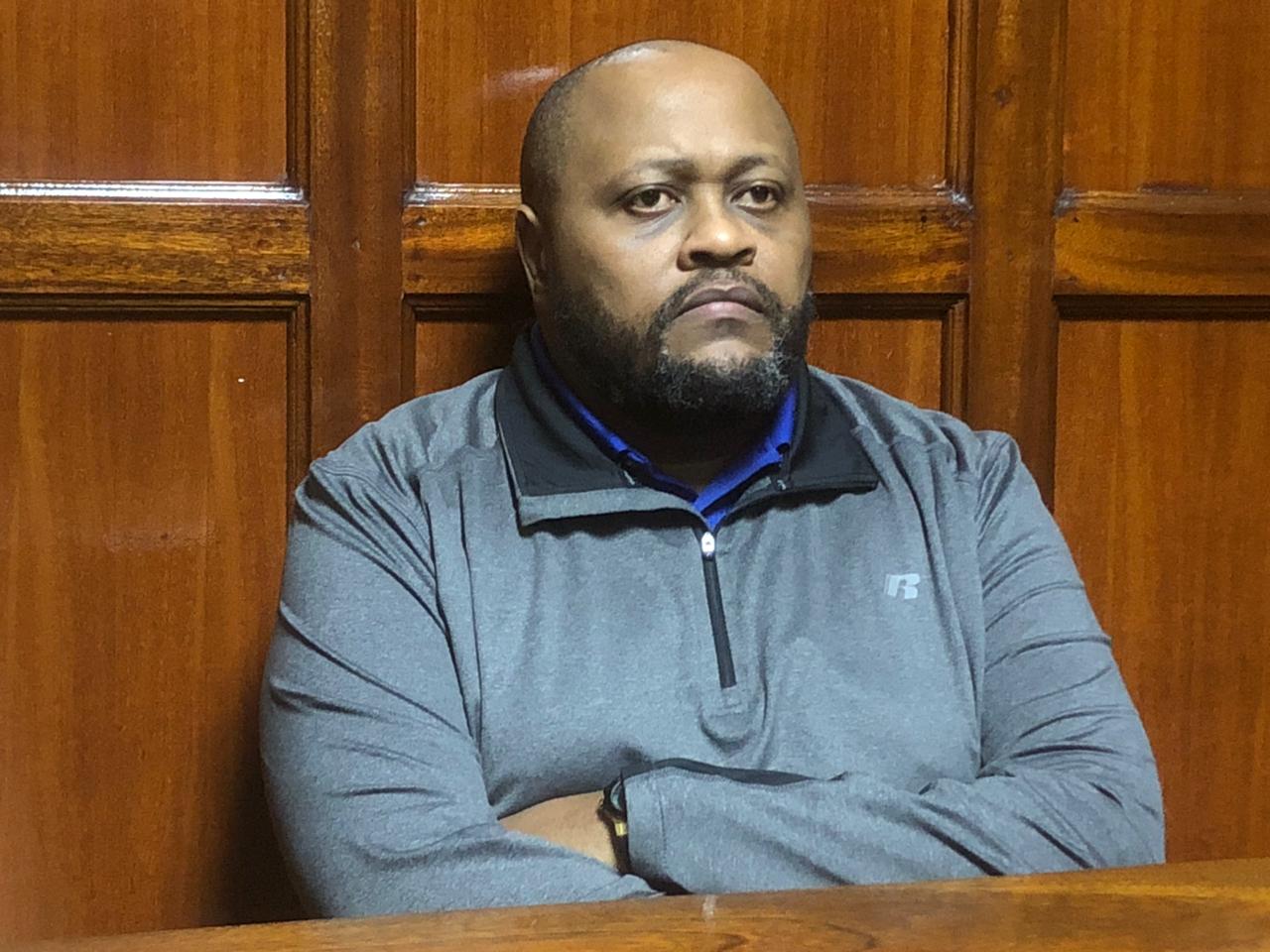
Francis Gaitho faced brutal arrest and arraignment, a design-feature of the archaic Section 23(A) of the Cybercrimes Act
In a chilling display of state overreach under that draconian Section 23(a) of Kenya’s Computer Misuse and Cybercrimes Act, prominent blogger and political commentator Francis Gaitho was arrested in July 2024 for allegedly publishing “false information” on social media – posts that were little more than sharp critiques of government handling of the Kware murders and broader corruption.
What followed was a brutal ordeal: over ten Directorate of Criminal Investigations (DCI) officers stormed his home, breaking down doors and savagely assaulting him in front of his family, before confiscating his gadgets, seizing his passport, and dragging him to Kamukunji Police Station, where he was thrown into a cell with hardened criminals and subjected to death threats.
Arraigned later on charges widely condemned as a pretext to silence dissent, Gaitho’s persecution has drawn international outrage, spotlighted in the United States State Department’s 2024 Human Rights Report as emblematic of Kenya’s assault on free expression.
This case now imperils the judiciary with potential sanctions and the loss of vital donor funding, underscoring how a flawed law transforms opinion into a crime and erodes the democratic fabric.
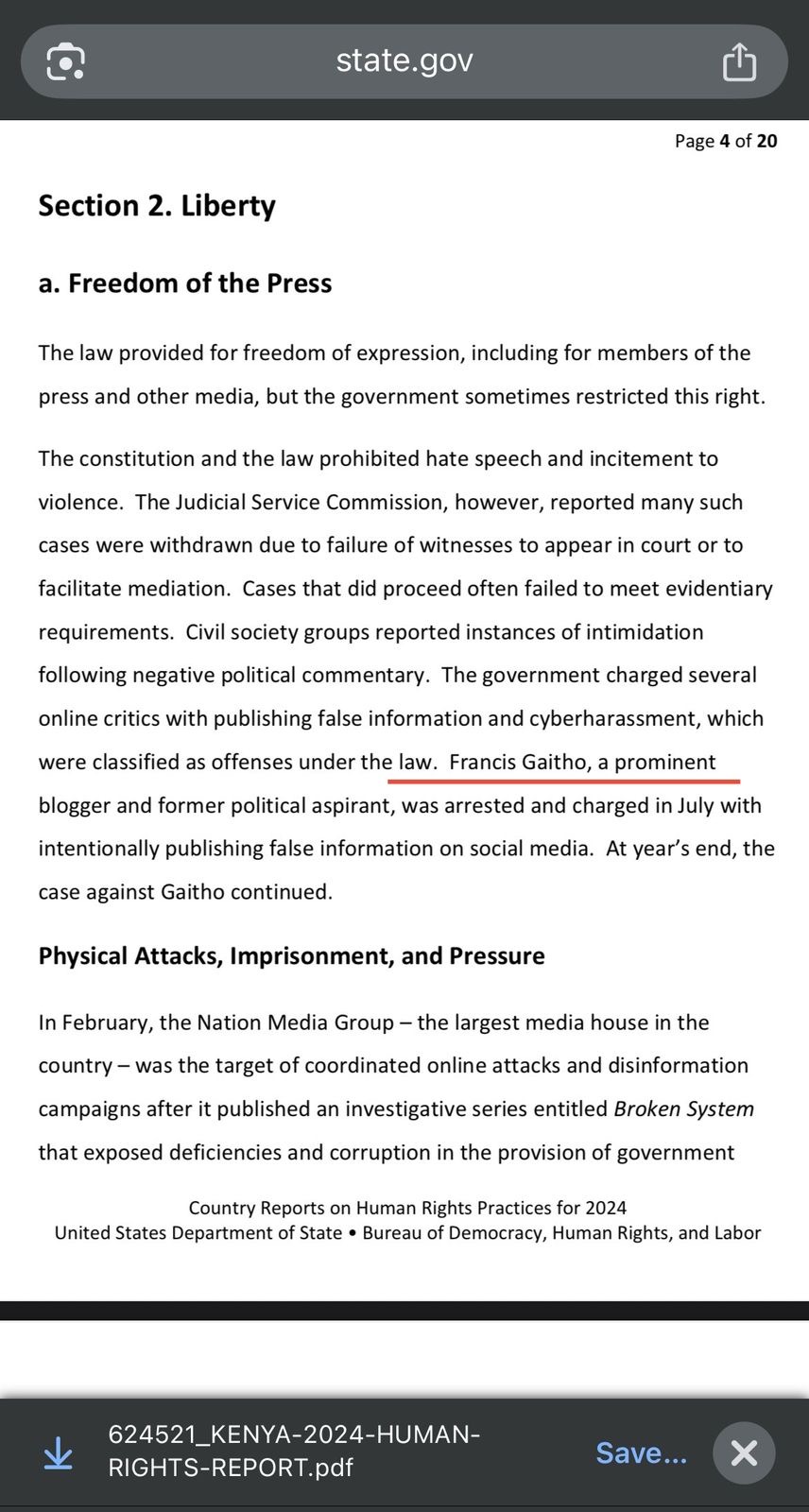
Section 23 looms as the digital inquisition tool Ngugi fought to bury, proving her transfer bought the state time to resurrect repression under a cybercrimes veneer.
Mutunga’s legacy? A judiciary shinier on the surface – more courts, less bribes – but rotten at the core, where “reform” meant bending to executive whims. He retired in 2016 with accolades, jetting off to Commonwealth gigs, leaving behind a cautionary tale: activists in power often trade firebrand ideals for the comforts of the establishment.
Ngugi, now a Court of Appeal judge and global jurist of the year, rose phoenix-like, earning plaudits for anti-corruption grit. But her Kericho detour reminds us: in Kenya’s halls of justice, true reform dies not with a bang, but a quiet posting notice.
Mumbi Ngugi’s judicial career stands as a testament to unwavering integrity and a fierce commitment to constitutionalism, marking her as the best Chief Justice Kenya never had.
Rising from a researcher at the Kenya Human Rights Commission to a High Court judge in the Constitutional and Human Rights Division, she delivered landmark rulings, such as declaring Section 29(b) of the KICA unconstitutional in 2016, championing free speech against state overreach.
Her transfer to Kericho, widely seen as punitive, only underscored her fearless independence, yet she rebounded to the Court of Appeal, earning global recognition as a jurist of the year for her anti-corruption stance.
With a blend of intellectual rigor, human rights advocacy, and resilience, Ngugi possessed the vision and moral authority to lead a transformative judiciary; qualities that might have elevated Kenya’s justice system beyond the reformist promises of peers like Willy Mutunga, had she ascended to the CJ’s seat.
Kenya deserves better than performative progressives. It’s time to demand a judiciary where rulings like Ngugi’s spark accountability, not airlifts to obscurity.
Mutunga, the “people’s CJ”? More like the establishment’s enabler – and history won’t absolve him.
